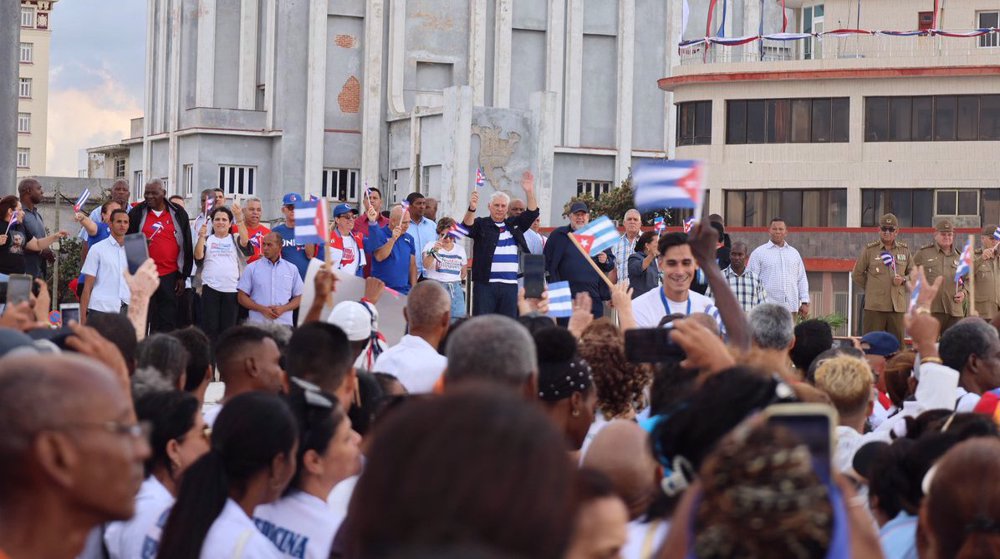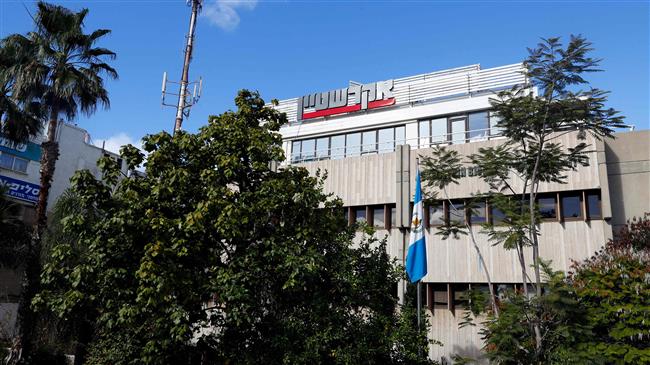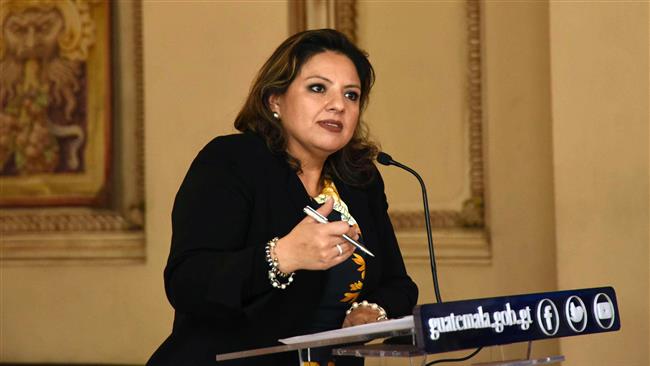Guatemala to dismiss anti-graft UN commission early
The Guatemalan government has informed the United Nations (UN) of its intent to dismiss a UN-backed anti-corruption commission months ahead of the end of its term, accusing it of abusing its authority.
Guatemalan Foreign Minister Sandra Jovel submitted a letter to UN Secretary-General Antonio Guterres during a Monday meeting in New York, informing him of the government’s plan to terminate on Tuesday the agreement that had set up the International Commission against Impunity in Guatemala (CICIG).
The CICIG was established over a decade ago with powers to carry out independent investigations and work with Guatemala’s prosecutors, leading to the ouster of the Central American country’s previous president in 2015.
The CICIG further investigated current President Jimmy Morales, who announced last August that he would not renew the commission’s mandate, which was due to expire in September 2019. Subsequently, Morales also banned Colombian prosecutor and CICIG’s chief Ivan Velasquez from re-entering the country.
Last month, Guatemala’s government also revoked visas and immunity for 11 CICIG investigators and two relatives.
“It is regrettable that the Secretary-General, in a bid to maintain one person in the position, sacrificed the legitimacy of the commission,” Jovel emphasized in a news conference following her meeting with the secretary-general, referring to Guterres’ decision to back Velasquez.
“Therefore we reported to the Secretary-General that within 24 hours the agreement (that was struck to create CICIG) will be terminated by the Guatemalan government,” Guatemala’s top diplomat added.
However, a spokesman for the UN chief insisted in an emailed statement that Guterres “strongly rejects” the content of the letter sent by Guatemala City, adding that the world body expected the Guatemalan government to “fulfill its legal obligations under the agreement” until the CICIG mandate concludes in September.
“The Secretary-General recalls the important contribution of CICIG to the fight against impunity in Guatemala,” the statement further read.

The development came after CICIG, along with the country’s attorney general at the time, attempted to prosecute Morales in 2017 over alleged campaign finance violations. The effort followed separate CICIG corruption investigations into members of the president’s family.
This is while Morales, accompanied by other prominent Guatemalans accused of corruption by the CICIG, announced at a Monday news conference in Guatemala City that he had ordered government prosecutors to begin probing allegations that the commission had operated outside the law and abused its mandate.
The CICIG is uncommon among UN bodies because of its authority to refer cases to local prosecutors, and many politicians in Guatemala reportedly consider the measure to be a violation of national sovereignty.
VIDEO | Yemenis praise the military for its successful operations against Israel
VIDEO | Israel continues to bomb Gaza homes
VIDEO | An insider's view of the country: Meybod City in Yazd
‘All wars have rules. All of those rules have been broken’ by Israel
VIDEO | Report flags India’s violation of rights of Rohingya detainees
Turkey's foreign minister meets Syria's de facto leader in Damascus
VIDEO | US Syria plots
'Next to impossible' to rescue patients from Gaza's Kamal Adwan Hospital: Director















 This makes it easy to access the Press TV website
This makes it easy to access the Press TV website